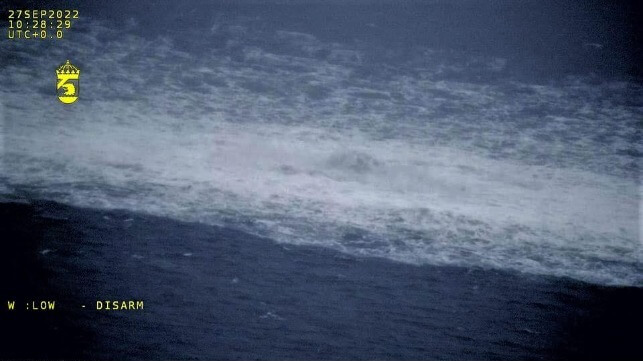US and Germany Add "Pro-Ukrainian Group" to Nord Stream Suspect List

German authorities confirmed on Wednesday that they have searched a vessel that may have had connections to the attack on the Nord Stream pipeline systems in September 2022. The blasts ruptured three out of the four parallel gas lines installed in the Nord Stream 1 and 2 projects, which used to transport gas from Russian producer Gazprom to utilities in northern Germany.
Investigators in Denmark and Sweden have confirmed that the damage was indeed an act of sabotage, but the culprit remains unknown to the public. Several theories are in active circulation. Ukraine and Poland have accused Russia of masterminding the attack, a claim that the Kremlin denies. Russia has accused various NATO members of complicity and has called for a UN-led investigation. Similarly, American investigative journalist Seymour Hersh has claimed that the strike was conducted by U.S. Navy divers and Norwegian Navy sailors, drawing on assertions from a single anonymous source in the U.S. intelligence community. The U.S. denies any involvement, and the White House has denounced Hersh's account as "utterly false."
This week, the New York Times and the Washington Post reported hints from Western defense sources that a "pro-Ukrainian group" might have been responsible for the blasts. The unnamed officials said that they have no hard evidence or intelligence intercepts tying the attack to any national government, but that they have reason to believe that Ukrainian partisans may have carried it out - perhaps without Kyiv's knowledge.
German media outlets ARD, Die Zeit and SWR have jointly reported that the German side of the blast investigation has turned up signs of Ukranian involvement - in particular, that a Ukrainian-owned company chartered a yacht that may have been used in planting the explosives. The reporting team learned that the yacht was located near the scene on the day after the attack, and that investigators had recovered traces of explosive residue on board.
On Wednesday, the German Federal Prosecutors' Office confirmed that in January, it searched a "ship" that may have been connected to the attack. "There is the suspicion that the ship in question could have been used to transport explosive devices" used in the blast, the office wrote.
Ukraine has dismissed these allegations and denied any official involvement. On Tuesday, Ukrainian presidential advisor Mikhailo Podolyak said that Ukraine had "nothing to do with the incident" and has no knowledge of any "pro-Ukrainian sabotage groups."

that matters most
Get the latest maritime news delivered to your inbox daily.
In a rare note of agreement with Kyiv, the Kremlin also dismissed suggestions that Ukrainian partisans were responsible. “It is simply a means of shifting suspicion from those in official government positions who ordered and coordinated the attacks in the Baltic Sea on to abstract individuals of some sort," the Russian embassy to the U.S. asserted on Wedensday.
The German government has also cautioned that any conclusions at this point would be premature, and that the investigation is ongoing. Officials have not ruled out the possibility that the yacht might have been set up as a "false flag" operation to plant blame on Ukraine, said German defense minister Boris Pistorius this week.
